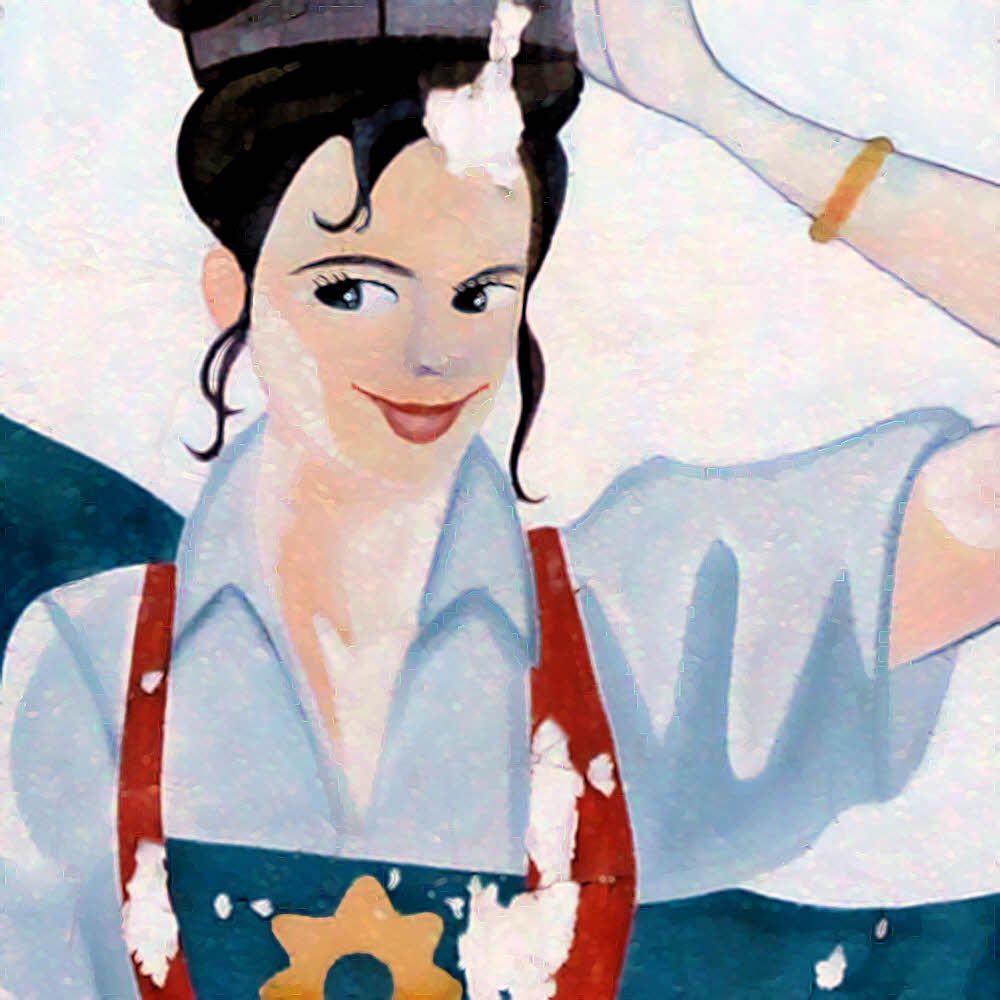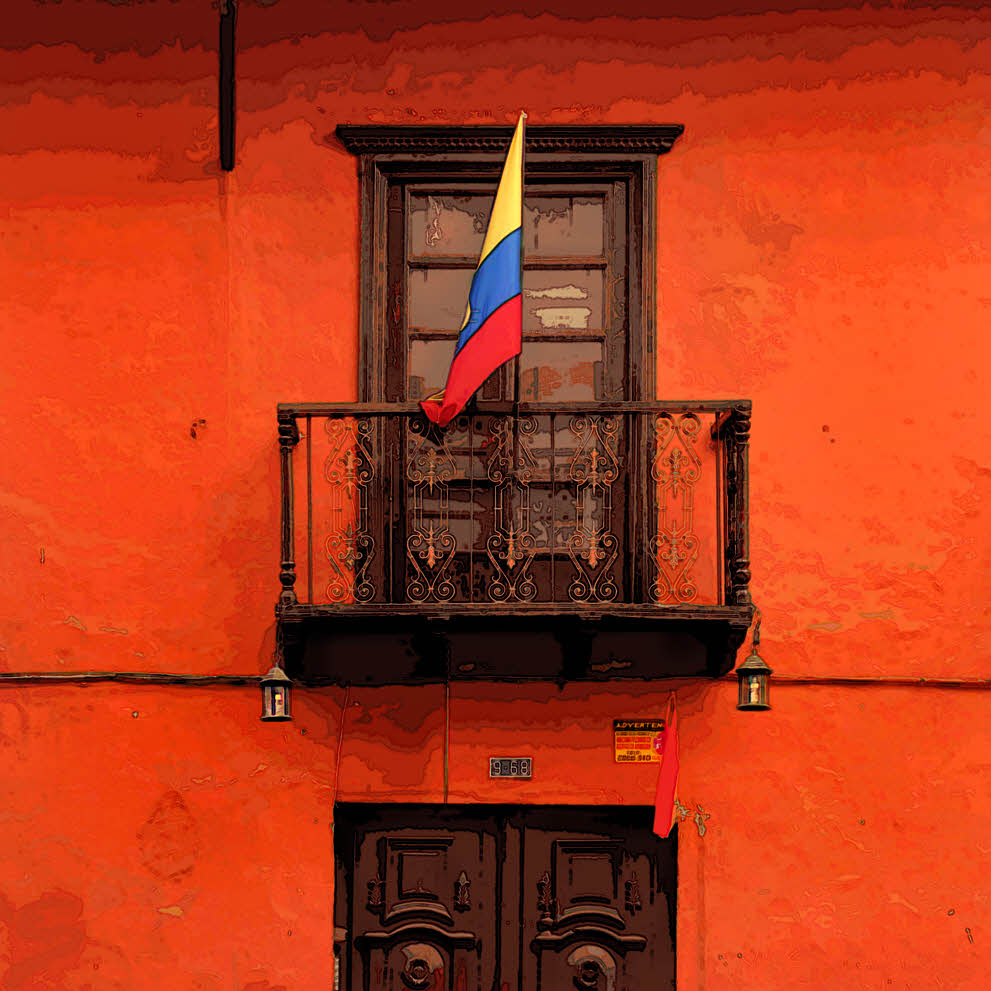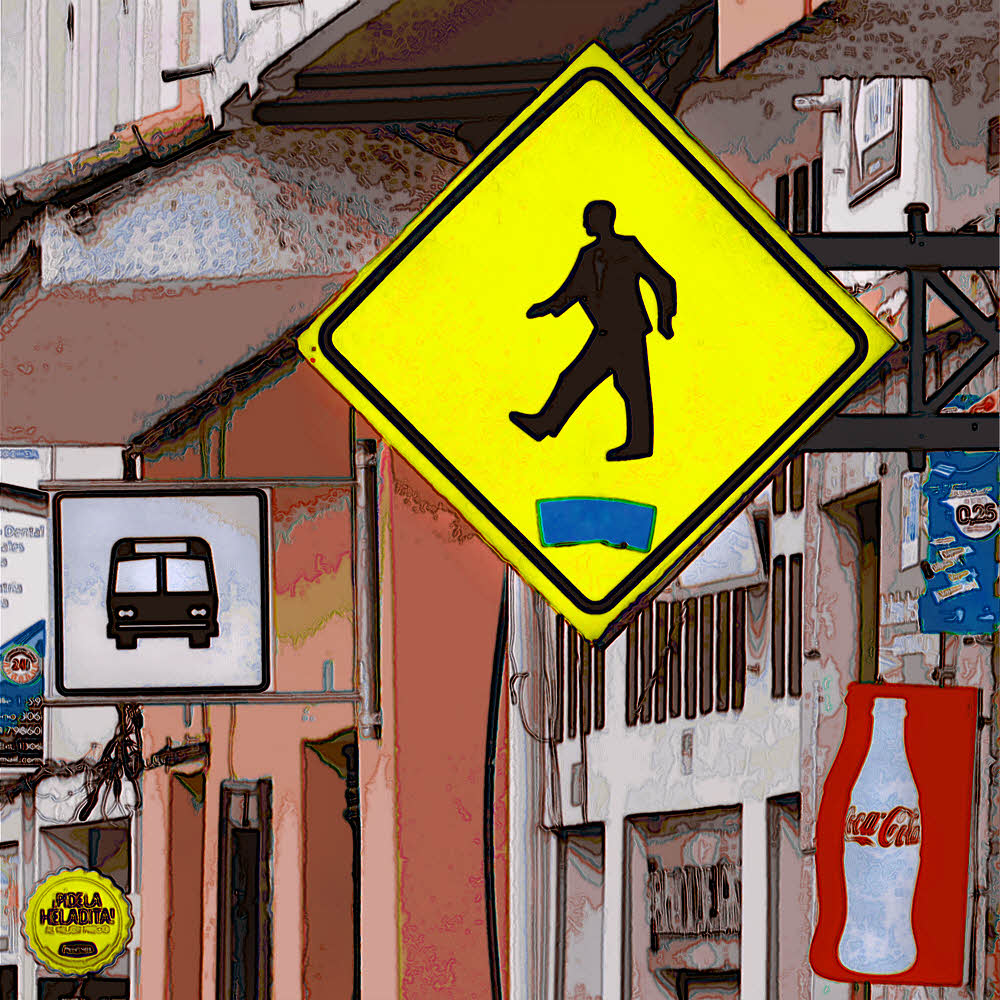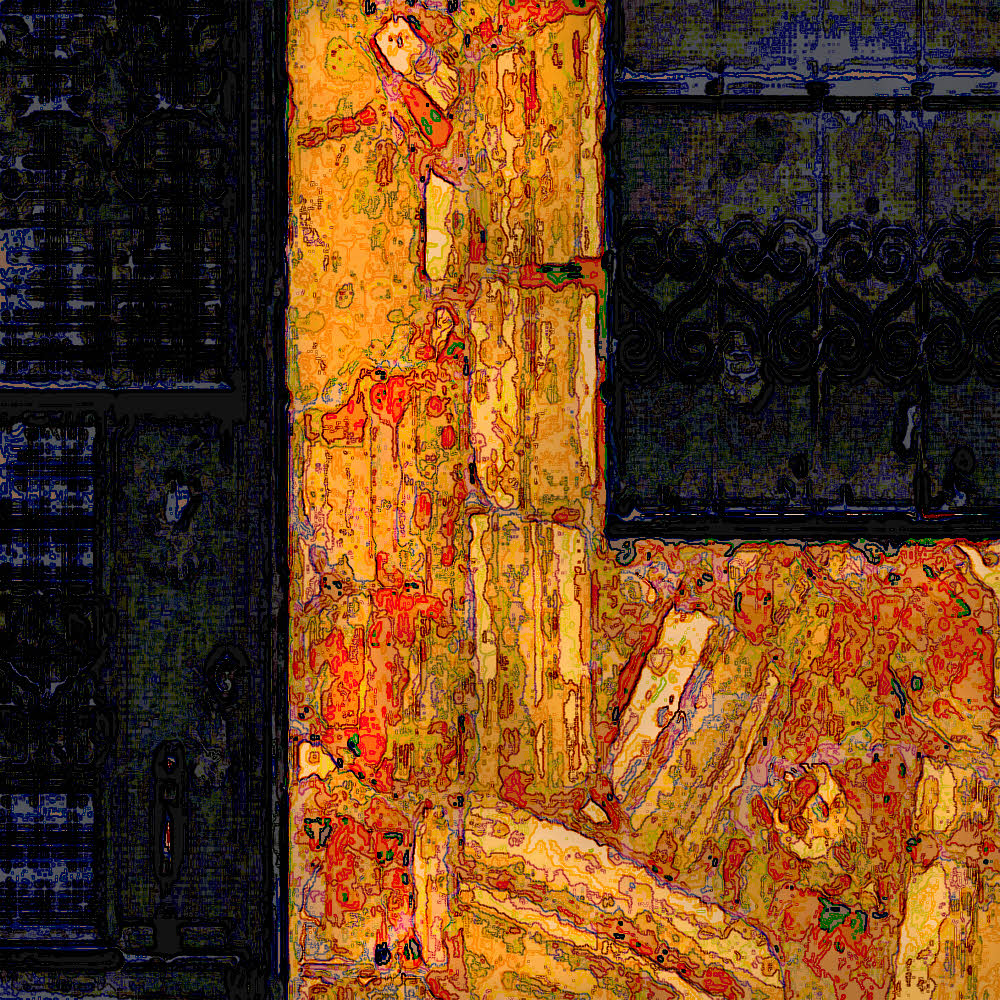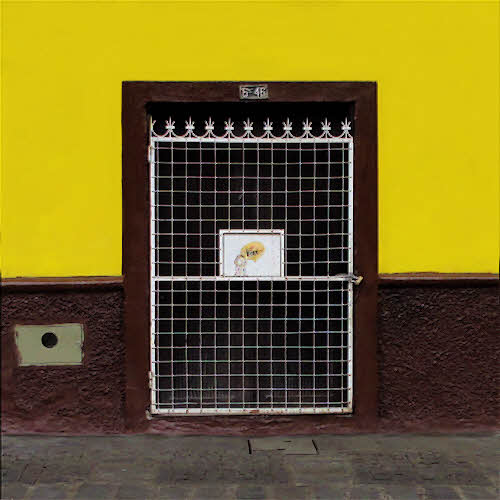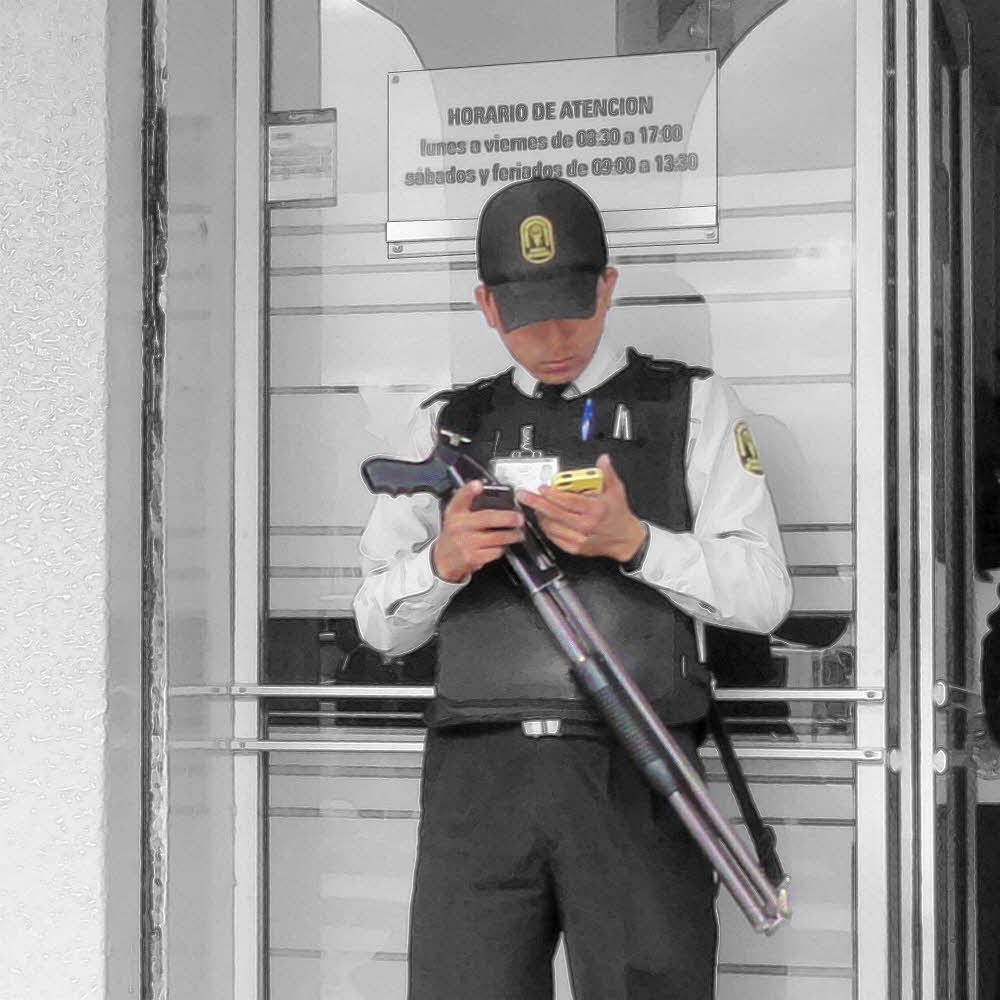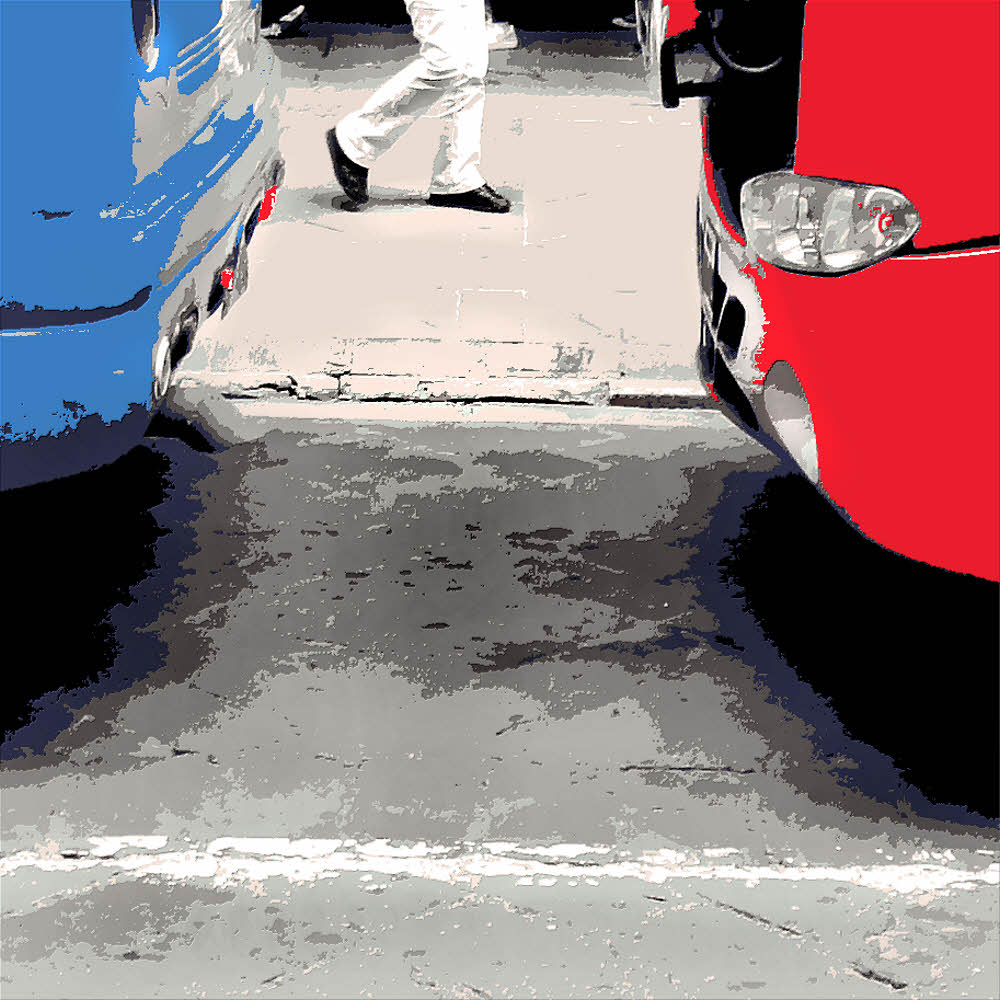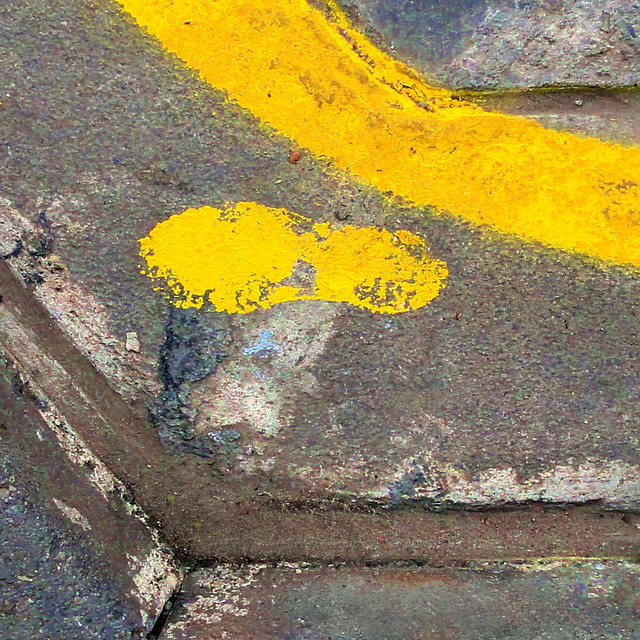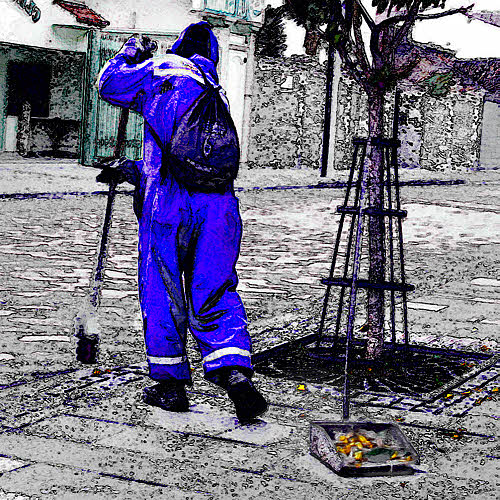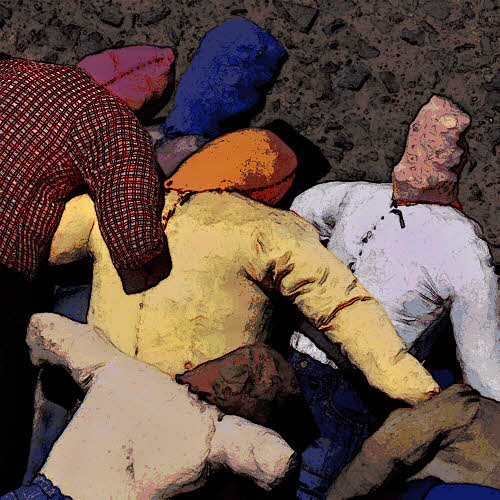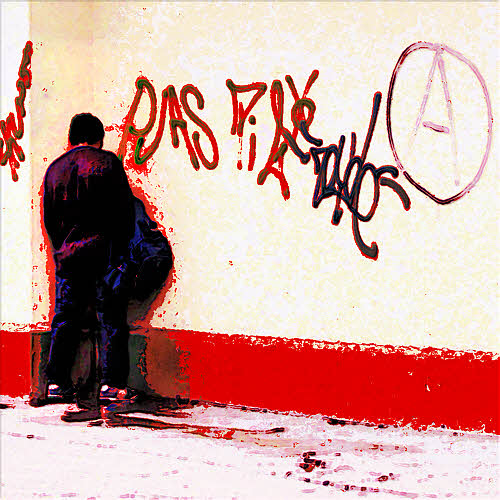Shower fumes.
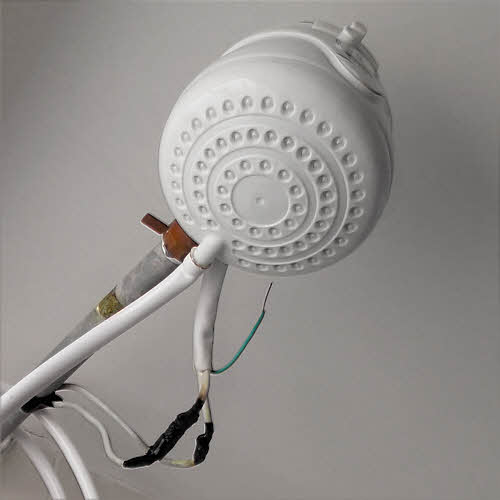
The knock on my door came at 7:22 a.m., and I was naked.
I had just finished warming two gallons of water on a hotplate that I bought the day before. This was my bath water. I was going to use it because I'm afraid to get in the shower again. The shower head smokes, and that is never a good sign. Not for a shower head it isn't.
Marina (let's call her Marina), is my landlady. Really, I think, she's more of a go-between, a matchmaker, a wholesaler, a jobber. The apartment I'm in is one of her wares. I am the mark.
She doesn't own this place, or any of them. She only sells it, over and over, to a slow but never-ending trickle of gringos flowing through town. Sells it in the sense of advertising and marketing and talking. She makes herself available and then makes the apartments available, and then gets an apartment and a renter to stick together for a spell, a process which includes an exchange of money. But others own the apartments she deals in. Who they are is unknown.
I rented this place for two months, paying rent up front. It's OK for what it is. Mostly I have a decent internet connection and decent security. Beyond that, some things work better than others, though the things that do not work perfectly work well enough.
Except for the shower.
Have you ever seen a suicide shower? I have one here, if you want to try it, but I would advise you not to.
A suicide shower is a plastic shower head with a heating unit inside. Wires come out and water goes in. When you turn on the water, the heating element kicks in, warms the water, and, down below, you do your thing. Adjust the water flow too low and the heater turns off. Set it too high, and it's like trying to warm the Pacific Ocean with a candle. Too much or too little, and you get cold water. Somewhere in the middle is moderately warm to nearly-kinda-hot water.
Unless you try showering here. My unit shudders and jumps, and suddenly the optimum water flow makes itself a slow drizzle, the heater kicks into suspended animation, and the water temperature dives toward absolute zero. Unless I grab the knob, in time, tick the flow rate up by 1.73 to 2.14 notches, and convince the heater to re-engage before any damage gets done. Like me going into an instant, full-body pucker-and-shrivel, for example.
Then it happens all over.
And sometimes I overshoot by cranking the water flow up by 2.63 notches, or more, and chillfully self-freeze my nubbins into dire submission.
But I can live with that.
I can also, sort of, maybe live with the bare wire coming out of the shower head. I think it's a ground. Call in an air ground because air is all it connects with. So far it seems to be harmless. I guess.
And also sort of, but less so, I can possibly survive the two live wires coming out of the wall and connecting to their counterparts reaching toward them from the shower head. Four wires. Two coming and two going. Connected. By electrical tape.
When I first saw that setup, my jeebies scared my heebies so bad I almost jumped out of my own skin, as all of them were doing, the wires. It was a multi-way panic. It took a while for calmness and equanimity to regain a vice grip on my consciousness. Good thing I have a mind like a steel trap. Too bad it's clogged with the carcasses of past misjudgments.
Well, anyway, it worked.
For a while. The shower head did.
Then the smell started. Toward the end of each shower.
There is an (get this) intrusive corner in the shower stall. By that I mean that one corner of the shower stall juts into the shower area. I think it hides plumbing. Or something I don't want to know about. And it is wood paneling.
No, I don't know either. But.
Sometimes cheap wood or wood laminate gets a particular sort of smell when wet, and this smell seemed that.
No. Sadly, no.
As the days went by, the smell came earlier in my shower time. And got stronger. Until.
I noticed that the electrical tape covering the bare wiring had melted, shrunk, and turned crackly. Because it was getting that hot. And so were the wires coming in, though their insulation didn't melt. Hasn't melted yet. That kinda official-looking, kinda-factory-like wiring only got too hot to touch.
And then a day or so later I noticed, while drawing hot (only warm, really) water into a pitcher (because the shower is my only source of heated water), that there was smoke curling upward from what was left of the electrical tape. Which is entertaining, if you have nothing else going on in your life, and also somewhat thrilling, to tell the truth.
It was about this time that Marina showed up, wanting to talk about my request for extending my stay here by two months.
She is actually quite nice to deal with. Shows concern. Treats you like the best person within spitting distance. All of that and more. And told me that the next day she would have an electrician come around to check on the shower head, which, strange as it seems, she said, was new only a little while back. But I was worth the effort, and was in my room the next morning at eleven, when the electrician did not show up.
The electrician also did not show up and 11:30, or 11:45, or 1:17, or 3:46, or any other time, but Marina was back. At 4:47 p.m. the very next day, on the dot, asking if I would be there at 5:00 p.m., because she had another electrician coming then, a very good on, better than the other ones she had scheduled, who had told her that they were afraid to touch a shower like this one, but her much, much better real electrician wasn't, and he would be by at 5:00 p.m., so would I be there for her, and for him?
Oh, sure.
And I went to bed at 9:18 p.m. that night, having missed whole herds of electricians, scared or not, who, if they passed by, did so in great silence and profound invisibility. Until.
This morning. At 7:22. When there was a gentle, mellow, and soft rapping on my door. Which came just seconds before I was going into the shower stall with a great, wide plastic tub of warm water and a scoop made from a used Chlorox bleach bottle (plastic), where I would crouch on the floor, wet my self with water, soap up and rinse and hope I had enough water to close the deal, but at least there would be no smoke, or fire, or electrocutions on that watch.
But the electrician did come, 14.5 hours late. It may be a new record. I'll have to check the registry, though sad to say, I had to turn him away.
I think it was the electrician. He did mention ducha, which is shower, but with one ear out of commission and the other operating at only half its capacity, and not being too incredibly good at Spanish, I could be wrong. But here's the deal, you see.
I was naked, alone, had a small tub of warm water waiting, and didn't need an unfamiliar guy in my room talking Spanish to me, or doing anything else. I didn't need none of it, except for the water, and nakedness (and privacy, as a pre-requisites for proper bathing technique, having found via extensive rounds of trial and error that bathing with my clothes on was sub-optimal, as is nakedness in public).
I didn't need no stinkin' company, and so convinced him to bug off. And bathed, and it was fine. As in OK-fine. Good enough. Passable. Mostly effective. Warm, at least, and completely lacking in electrical excitement or smoke.
Which illustrates the value of two things.
One is planning.
Yesterday I decided to buy a hotplate, and did, and used it to heat my bathwater, though it took nearly an hour to do that.
The other valuable thing is money. Which I have enough of, for here, for now. So it was easier and cheaper for me to spend $21.72 on a hotplate than to find another place to stay for two months, and then to move there, and then to put up with other, as yet unknown things going wrong.
Because, aside from the possibly homicidal shower head I have, and the strangely sticky tap water which I've quit drinking, and the occasional fly or moth that comes to visit, and the odd few minutes of cigarette smoke that comes up the stairwell and hunts for my room, and the dead cable TV, and something else I can't quite remember now (OK — got it — the sour-smelling bedspread and comforter that Marina gave me for the bed, and the blanket with so much hair on it that it effectively has its own pelt), you know? Not that bad here.
The internet connection is adequate, and I'm afraid to lose that by going elsewhere, so unless Marina and the local gremlins find something else to torture me with, I'm getting by.
I am, aren't I?

